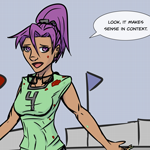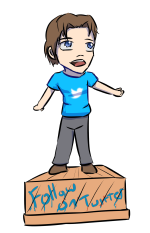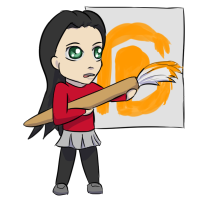An Advertiser’s Guide, the 2016 Update.
In the past I’ve been known to share some of what I’ve learned about the various options webcomics have when it comes to the dark and scary world of advertising campaigns. Well, unfortunately, all I really have to share with this round is that world has gotten darker and scarier, and we’ve stumbled toward a place in which it’s a bad market for both buying and selling, which, economically speaking and all, is impressive.
The Selling Front.
From the selling side, payouts are at a low ebb from Google as they push more and more of their market to mobile friendly and YouTube. Not too much to do here, but if you want to Google-mobile friendly your site you can repair some of this damage. With ad-blockers being far less common on mobile, a constantly rising market share, and being more the advertising target demographic, it makes sense that’s where ads are going. Personally I think mobile advertising is, unfortunately, not currently ideal. It relies heavily on pop-ups, banners that come up over navigation buttons, and all around you have far less space to be sharing it with ‘sponsors’.
Project Wonderful hasn’t changed. Unfortunately. I’ve always liked them as much as I can, but it’s an extremely limited network. It’s campaign and search tools make mass-market bidding generally a bad idea, and correspondingly the payouts are pretty small as you’ll only see penny-ante campaigns and visitors doing the bidding 90% of the time.
The Buying Front.
This is where it gets really curious. In most markets, when it’s a shitty time to be selling, that means it is a correspondingly excellent time to be buying. Webcomic advertising manages to once again hit a unique grade of bad here.
Of the major options, two have dropped out of the rankings:
Key: (o) is the same, (–) is worse then it was, (—) is no longer an option. … Yeah, there is no option for ‘is better’.
- Comic Rocket(—) is no longer selling ad space. This is a baffling decision, but probably related to their slow decline and lack of profitability; it looks like they’ve switched a Patreon model, which is an interesting choice.
- Hiveworks(—) is no longer really an option. They technically still sell ad space, but with a 1,000 USD minimum (monthly) it is no longer in the realm of any webcomic marketing budget. Technically they claim you can bid on their sites through AdWords, but site-targeting through AdWords is sort of like mosquito swatting with a sack of potatoes – it’s not going to end well, and you’ll have spent a lot of effort trying.
Where does this leave you? Honestly the options are down to:
- Project Wonderful(o). Still okay, but it’s a lot of man hours for you what you get. It’s great for learning the ropes of advertising and getting the word out, but only a handful of sites use this anymore after Hiveworks stomped it out on it’s network sites, and it’s popularity was never something to write home about to start with.
- Top Web Comics(–). This used to be the most underrated option out there, and while it’s not bad, they did bring the price up steeply to be more in line with what it’s worth. I’d say this should probably be your first ‘big budget’ stop, but it’s not the no-brainer it once was.
- Google AdWords(–). I honestly cannot recommend this right now unless your already familiar with the system or have skin the mobile game. It’s tough to get anything reasonable priced that isn’t scam traffic, and they heavily penalize not mobile friendly sites even for desktop traffic in their current mobile zeal.
- The Webcomic List(o). Nothing to report on this front. Still a trickle of traffic in for a trickle of money out. If you want a cheap(ish) option that’s cost effective but not exactly revolutionary, it’s worth a shot.
Sorry for the doom and gloom. Hopefully we’ll see a new contender or a better program come along at some point. There are a few new free options, like the Story Comic Subreddit, but traffic is, well, you get what you pay for.
Overall I think the market is moving even more toward social media for promotion and patreon for support. This is good and bad, and means that the ‘social presence’ of the author and the success of the webcomic are ever more tightly bound. I’d argue this is probably bad for hobbyists and good for professionals (or at least professionals that enjoy the social media thing, and are deemed socially media acceptable, that is).




Discussion ¬